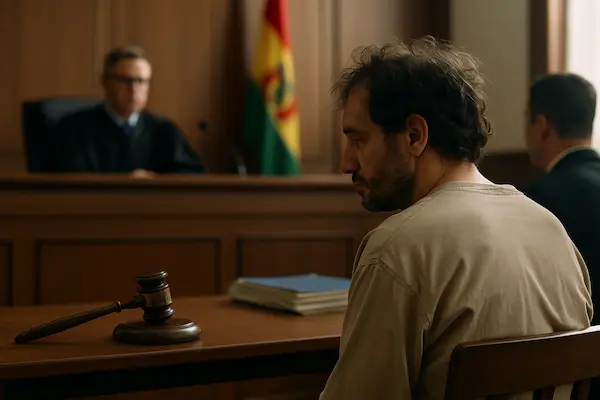For example, the same offense committed by a repeat offender is not assessed in the same way as when committed by someone with no criminal history.
JUDICIAL CRITERIA FOR SENTENCE DETERMINATION

PERSONAL FACTORS THAT INFLUENCE SENTENCING
The assessment of the offender’s personality is a key factor in sentencing. The judge evaluates aspects such as age, education, personal habits, behavior before and after the crime, motives behind the offense, and the individual’s economic and social situation, as well as family or social ties.
Additionally, the victim’s condition is considered—particularly if the crime affected a person in a vulnerable situation. Certain aggravating circumstances also reflect a higher level of culpability, including premeditation, treachery, or cruelty.
Practical example: in a theft case, if someone steals food from a market due to extreme poverty and the need to feed their family, the judge may consider poverty as a mitigating factor. In contrast, if another person plans the theft for financial gain, the sentence will likely be more severe.
CRIME-RELATED FACTORS THAT DETERMINE SENTENCING
In addition to the offender’s personal characteristics, the objective seriousness of the offense must be analyzed. The following aspects are taken into account:
- The nature of the criminal act.
- The means used to commit the offense.
- The extent of the harm caused to the victim.
- The level of danger posed to society.
As such, an act that causes minor harm will not be punished the same as one that leads to irreversible consequences or places a greater number of people at risk.
Practical example: arson in a vacant lot is not assessed the same as arson in an inhabited building, where multiple lives are endangered.
In summary, sentencing determination requires a comprehensive analysis that combines both personal and objective factors. The judge must evaluate both the offender and the offense itself, always within the legal framework, to ensure proportionality and justice in each case.
If you are facing a legal situation involving sentencing in criminal proceedings, contact our law firm for expert legal advice.
Frequently Asked Questions (FAQs)
Can a judge impose any sentence within a criminal proceeding?
No, the judge must sentence within the limits established by law and based on the circumstances of the case.
Does the economic situation of the accused influence the sentence?
Yes, the law acknowledges that the offender’s social and economic condition is a relevant factor in assessing their personality.
What is the difference between subjective and objective circumstances?
Subjective circumstances relate to the personal characteristics of the offender, while objective ones concern the seriousness of the committed act.
What happens if the crime was committed with premeditation or cruelty?
These factors aggravate the evaluation of the act and may result in a harsher sentence.
Does the victim’s condition influence the sentence?
Yes, the status of the victim can increase the gravity of the offense, especially if they belong to a vulnerable group.
The content of this article does not reflect the technical opinion of Rigoberto Paredes & Associates and should not be considered a substitute for legal advice. The information presented herein corresponds to the date of publication and may be outdated at the time of reading. Rigoberto Paredes & Associates assumes no responsibility for keeping the information in this article up to date, as legal regulations may change over time.



